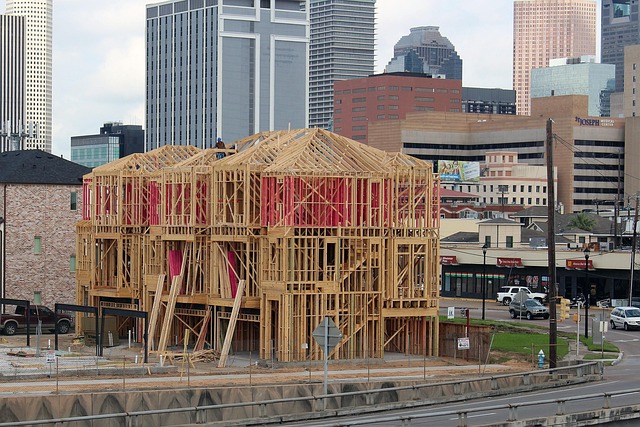In Texas, navigating fire insurance claims is crucial for homeowners and businesses in Houston recovering from fires. Understanding coverage options, documenting damage, and adhering to state-governed settlement processes ensure fairness. Selling fire-damaged property in Houston requires careful assessment, professional guidance, and a strategic marketing approach to navigate complex regulations and maximize appeal for potential buyers. Engaging with reputable local professionals facilitates claims navigation, fair settlements, and rebuilding efforts.
In Texas, fire insurance claims are crucial for homeowners and businesses recovering from devastating losses. Understanding the intricate process of these claims is essential, especially in bustling cities like Houston, where quick decision-making can impact the future of your property. This article guides you through navigating fire insurance claims in Texas, offering practical insights on selling fire-damaged property in Houston, common challenges, and effective strategies to overcome them. By delving into these topics, we aim to empower readers with knowledge, ensuring they make informed choices during challenging times.
- Understanding Fire Insurance Claims in Texas
- Navigating the Process of Filing a Claim
- Selling Fire-Damaged Property in Houston: Do's and Don'ts
- Common Challenges and How to Overcome Them
Understanding Fire Insurance Claims in Texas

In Texas, fire insurance claims are a critical process for homeowners and businesses recovering from a destructive fire. Understanding this mechanism is essential for anyone looking to sell fire-damaged property in Houston or any other part of the state. The first step in navigating these claims involves familiarizing oneself with the different types of coverage available. Standard fire insurance policies typically cover direct damage from flames, smoke, and water used to extinguish the fire. However, policies may vary, so reviewing the specific terms and conditions is vital.
When a fire occurs, policyholders should immediately contact their insurance provider to begin the claims process. This involves documenting the damage with photographs and videos, creating an inventory of lost or damaged belongings, and providing a detailed account of the incident. Texas law provides guidelines for adjusting and settling these claims, ensuring fairness for both policyholders and insurers. For those looking to sell fire-damaged property in Houston, it’s crucial to understand that insurance settlement funds can be used as capital for rebuilding efforts or purchasing new assets, making informed decisions about the future of their property.
Navigating the Process of Filing a Claim

Navigating the process of filing a claim for fire damage can be daunting, especially after experiencing the stress of a fire. In Texas, homeowners and business owners alike should know that there’s a structured approach to recovering from such disasters. The first step is to document every detail—from taking photos of the damage to gathering medical records if injuries occurred. This evidence will be crucial when filing with your insurance provider.
Next, contact your insurer promptly and inform them of the fire incident. In Houston, where selling fire-damaged property might be a consideration, understanding your policy terms regarding replacement value versus actual cash value is essential. Your insurer will guide you through the next steps, which may include hiring professionals to assess the damage and provide repair estimates. This process ensures that your claim is accurately evaluated, paving the way for a quicker settlement and, potentially, facilitating the sale of fire-damaged property in Houston if that’s your desired course of action.
Selling Fire-Damaged Property in Houston: Do's and Don'ts

Selling fire-damaged property in Houston can be a challenging process, but with the right approach, it doesn’t have to be overwhelming. First, assess the extent of the damage; document and photograph everything for your insurance claim and future reference. Major repairs or structural issues may require professional appraisals. Once ready, decide whether to sell as-is or renovate first. Selling as-is can be quicker but might fetch lower prices, while renovation allows you to increase the property’s value but comes with costs and time delays.
Do’s: Research local real estate trends and comparable sales of similar fire-damaged properties in Houston. Engage an experienced local realtor who understands these nuances. They’ll guide you through the process, market your property effectively, and connect you with potential buyers. Don’ts: Attempt to sell without professional help; it could lead to lower offers or legal complications. Avoid overspending on renovations if not necessary; focus on repairs that enhance the property’s appeal and safety rather than cosmetic changes.
Common Challenges and How to Overcome Them

Fire insurance claims can be a complex process, especially in Texas, where varying conditions and regulations come into play. One of the primary challenges is understanding the policy terms and what’s covered, which can be daunting for many homeowners, particularly after a traumatic event like a fire. Many policyholders struggle to interpret their policies, leading to delays in filing claims or even disputes with insurance providers.
To overcome these obstacles, it’s crucial to familiarize yourself with your insurance policy. Reviewing the document and understanding the specific coverage for fire damage is essential. Additionally, engaging with reputable local professionals, such as those specializing in selling fire-damaged property in Houston, can provide invaluable support. They offer expertise in navigating claims, ensuring you receive a fair settlement, and even assisting in rebuilding efforts. This collaborative approach can significantly ease the process and help homeowners get back on their feet after a fire.
Fire insurance claims in Texas can be a complex process, but with the right knowledge, navigating these challenges becomes more manageable. Understanding your policy, knowing how to file a claim effectively, and being aware of the specific considerations when selling fire-damaged property in Houston are crucial steps. By following the do’s and don’ts outlined in this article, you can ensure a smoother transition after a fire and potentially maximize your compensation. Remember that, in the event of a loss, prompt action is key to a successful claim, and with the right approach, you can turn a difficult situation into a positive outcome.






